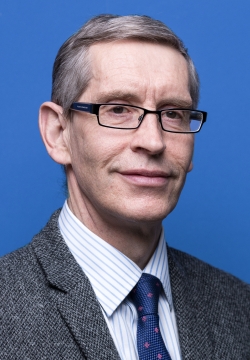
by Rory Mair CBE, Chair of CAS.
This article was first published on 23 September 2023.
Next week, after six years, I will step down as Chair of Citizens Advice Scotland. Much has changed in those six years from austerity to Covid to the current cost of living crisis.
One issue has remained constant in my time as Chair - the unacceptable levels of poverty that scar our communities. It’s high time our society had a serious debate about this endemic problem.
The CAB network has three key principles about its advice – it is free, confidential, and impartial. We don’t judge how you found yourself needing advice, we just help.
The most useless response to someone’s poverty is to ask them how they got there. It’s completely irrelevant and leads to unhelpful and often pejorative concepts like the undeserving poor, the working poor and by implication the feckless poor.
Look at Mountain Rescue Service or the Royal National Lifeboat Institution. They don’t ask people trapped on a mountain or facing being swept away by the tides how they got there – there’s no time, they just sort it out.
Make no mistake poverty is just as dangerous and life changing as a mountain incident or maritime emergencies.
It’s important to remember there is a very big distinction between feeling the pinch and being in poverty. You could be earning £50,000 a year and have no money at the end of the month. That’s not living in poverty.
Real poverty destroys lives. It can kill, it certainly shortens lives. It consigns people to years of ill health. It affects educational attainment and future job prospects. It increases the chances of being involved with the criminal justice system and increases a person’s chances of being harmed by drug or alcohol abuse.
There are good reasons why the eradication of poverty should be the number one priority of any government.
Firstly, it’s simple humanity. Why would any society allow some of its people to suffer?
Secondly, even if we believe that people in poverty play a role in getting there, is it fair to condemn any individual to a lifetime of discomfort, pain and pressure which will transfer through generations? Very few criminal acts would carry such a “lifetime” sentence.
Lastly spending significant resources keeping people out of poverty just makes economic sense. The cost in public services to deal with the effects of poverty would be better spent on prevention. Policy makers know this but continue to spend on treating the symptoms instead of preventing them in the first place.
Prevention means resources can be used better. The CAB network in Scotland saves the NHS around £22 million a year and the legal system around £11 million a year by preventing problems getting worse and generates net gains worth up to £245 million for Scottish society.
So, two things are necessary. We must spend more resources stopping people being swept into poverty in the first place and getting those who already struggling out of that situation.
A rescue package of independent advice and support needs to be properly funded and supported. People are drowning. They’ve heard enough lectures. They need a lifeboat.